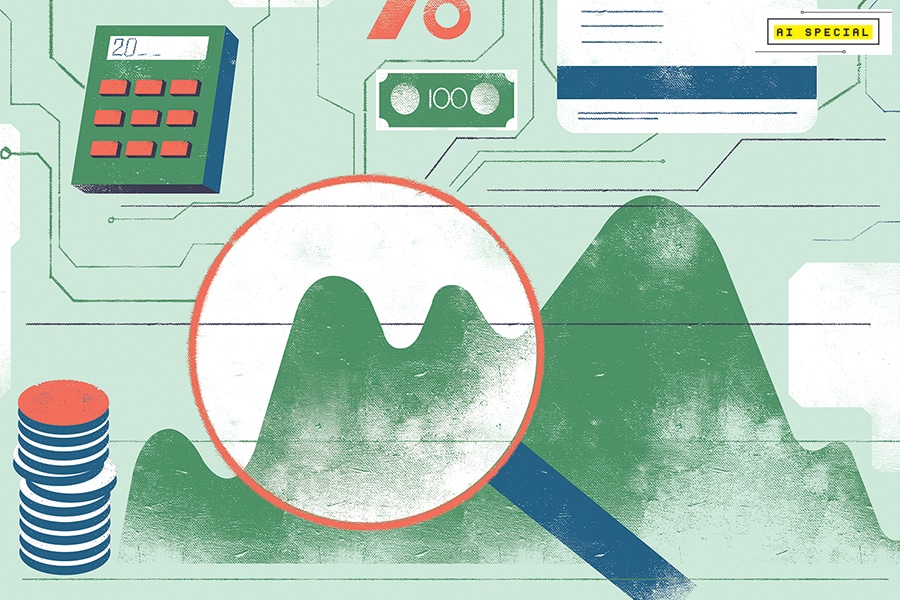Three Indian AI fintech startups to look out for
Fintech startups in India raised more than $2 billion in the first five months of 2021, representing a 4X rise from $495 million raised in the first five months of 2020. And the sector is just heating


 Crediwatch provides tools for assessment and monitoring, and a self-service dashboard that lets businesses search for any entity they are interested in
Crediwatch provides tools for assessment and monitoring, and a self-service dashboard that lets businesses search for any entity they are interested in
Illustration: Sameer Pawar
Before she co-founded Crediwatch Information Analytics with her husband, Meghna Suryakumar was a corporate lawyer. And it was her experience of trawling through documents, Excel sheets and other data in courts and regulatory offices that led to the idea of automating it.
Suryakumar is CEO and she brought in the domain expertise, while her husband, an experienced technologist, brought in the coding.
Today, Crediwatch is a data-insights-as-a-service company that provides lenders and businesses credit intelligence that improves transparency and helps them boost their lending and trading operations. Crediwatch does this by using AI to provide a dynamic ‘trust score’ on a large number of businesses.
This kind of information service is a multi-billion dollar market. Fintech startups in India raised more than $2 billion in the first five months of 2021, representing a 4X rise from $495 million raised in the first five months of 2020, according to an Inc42 report.
Fifteen years ago the government started to digitalise public data about businesses. By the time companies like Crediwatch started, there was enough public data stored digitally that application of AI was a possibility.
“Five years ago, fintech was beginning to take off in India and lenders were looking at automating the lending process—they were looking at alternative data sets," Suryakumar recalls. She realised the same processes and tools could help businesses make financial decisions with respect to their supply chains. “A lot of small businesses have larger companies as customers. If they get an alert about a customer’s financial position, like a large cheque at risk of defaulting, they can take early mitigating steps," she explains.
Crediwatch provides tools for assessment and monitoring, and a self-service dashboard that lets businesses search for any entity they are interested in. For example, if a business has a credit exposure to a customer, it can monitor the public data about that customer’s transactions using Creditwatch.
“People want simple outputs and answers," Suryakumar says. At Crediwatch, they fed the “wealth of data that is out there" to their proprietary algorithms, using nearly five years’ worth of data on companies to get a good picture about them.
They further hoovered up public data on companies that had defaulted on loans, to figure out how early Crediwatch might have predicted the defaults. This helped them identify data points that were most predictive of financial distress. They found 11 such parameters, and built a model to determine the weightage for each of these parameters. In about three years, they were ready to do pilots with banks and other customers and came up with their early-warning algorithm and improved the product.
“The result was that our model is 10 to 15 percent more predictive than the traditional regression models that are used for risk management today."
First Published: Aug 11, 2021, 12:34
Subscribe Now